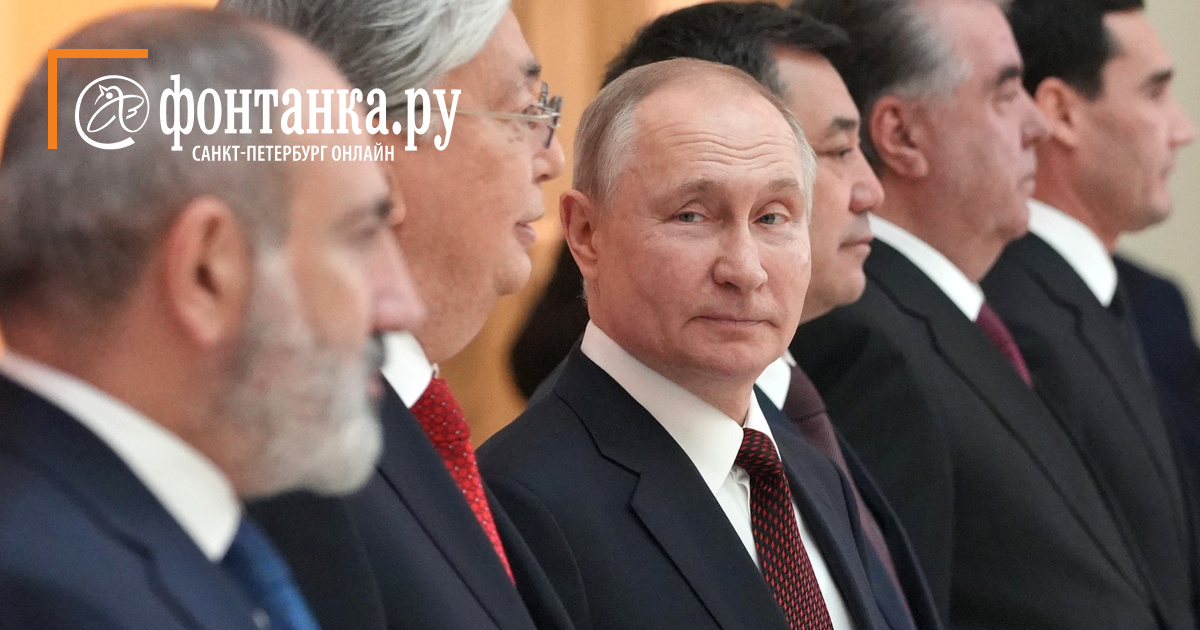Russia may take foreigners’ shares in Sakhalin-2 – Business – Kommersant
The authorities of the Russian Federation have arranged for foreign facilities in the Sakhalin-2 project – Shell, Mitsui and Mitsubishi – a test of loyalty to Russian jurisdiction. According to the decree of President Vladimir Putin, all project facilities will be transferred to the ownership of the Russian Federation. The new operator of the project will be the Russian LLC Sakhalin Energy, whose shareholders will be Gazprom and foreign participants in Sakhalin-2, if they so wish. If they refuse to participate in the project under the new conditions, their shares will be sold, and the money from the sale will be frozen in the Russian Federation on accounts of type “C”. The amount of this amount may be reduced by the “damage” that the foreign participant may have caused in the course of its previous activities in the Russian Federation.
The Russian authorities decided to radically solve the problem of shareholders of the Sakhalin-2 project, which since 1994 has been implemented on the basis of a production sharing structure. In addition to Gazprom, Shell (27.5%), as well as the Japanese Mitsui (12.5%) and Mitsubishi (10%) own shares in the project. Shell has already stated that it is looking for a way to implement the project due to the rapid operation in Ukraine and the subsequent events of the West against Russia.
In accordance with the decree of communication of Vladimir Putin dated June 30, “in life they are associated with certain situations related to technical and technical conditions, and the safety of people, occupying in connection with limited foreign legal entities and individuals associated with obligations”, are related to the implementation of the PSA , property of the Sakhalin-2 project. will be transferred to the ownership of the Russian Federation.
This is due to the fact that under the PSA, the Russian state paid in full for the creation of a key production and transport facility, as well as gas liquefaction enterprises, and under the terms of the agreement, these facilities should become the property of the state.
Further, the government will create a Russian LLC, which will transfer all the employees, rights and obligations of the private operator of the Sakhalin-2 project – Sakhalin Energy. In this LLC, the current shareholders of Sakhalin Energy receive the entire share, which should be expected within a month of filing. If, on the other hand, foreign companies that received their intended share in Russia, LLC and the largest shares in the proposed structure of the Russian Federation, then the turn within four months must sell this share. The proceeds will be received to monitor the foreign participant of Sakhalin Energy, but in fact they will be frozen in the Russian Federation to a type “C” account. Moreover, the government is instructed to carry out an “environmental, technological and legal audit” of the activities of such a foreign company in the Russian Federation on the subject of indictment on its behalf, and the amount of such attraction will be written off from the funds in the “C” account.
In other words, the Russian authorities are forcing foreign companies to agree to the proposed conditions for their participation in Sakhalin-2, if foreign shareholders risk simply losing their stake.
Sakhalin Energy Investment Company Ltd. registered in Bermuda. As part of the Sakhalin-2 project, two fields are being developed in the northern production of the Sakhalin sea shelf – Piltun-Astokhskoye (mainly oil) and Lunskoye (mainly gas). The Sakhalin-2 LNG plant was launched in 2009, its capacity is up to 11.6 million tons of LNG per year.
Shell, almost from the very beginning of hostilities in Ukraine, announced that it was completely ceasing interaction with Russia. Bloomberg reports that Chinese companies CNOOC, CNPC and Sinopec are paying particular attention to buying its stake in Sakhalin-2.
As for the Japanese authorities, they are cautious about the possibility of withdrawing from the Russian project. In the first chapter of Tokyo Gas Taxi, Uchida stated that Japan’s withdrawal from the Sakhalin-2 project was approaching disruption in conditions, and it would be difficult to quickly find an alternative to Russian LNG. “It is physically impossible to completely replace Russian gas spot supplies,” the head of the company said. According to him, Sakhalin-2 provides 8% of the deep interest in LNG.



